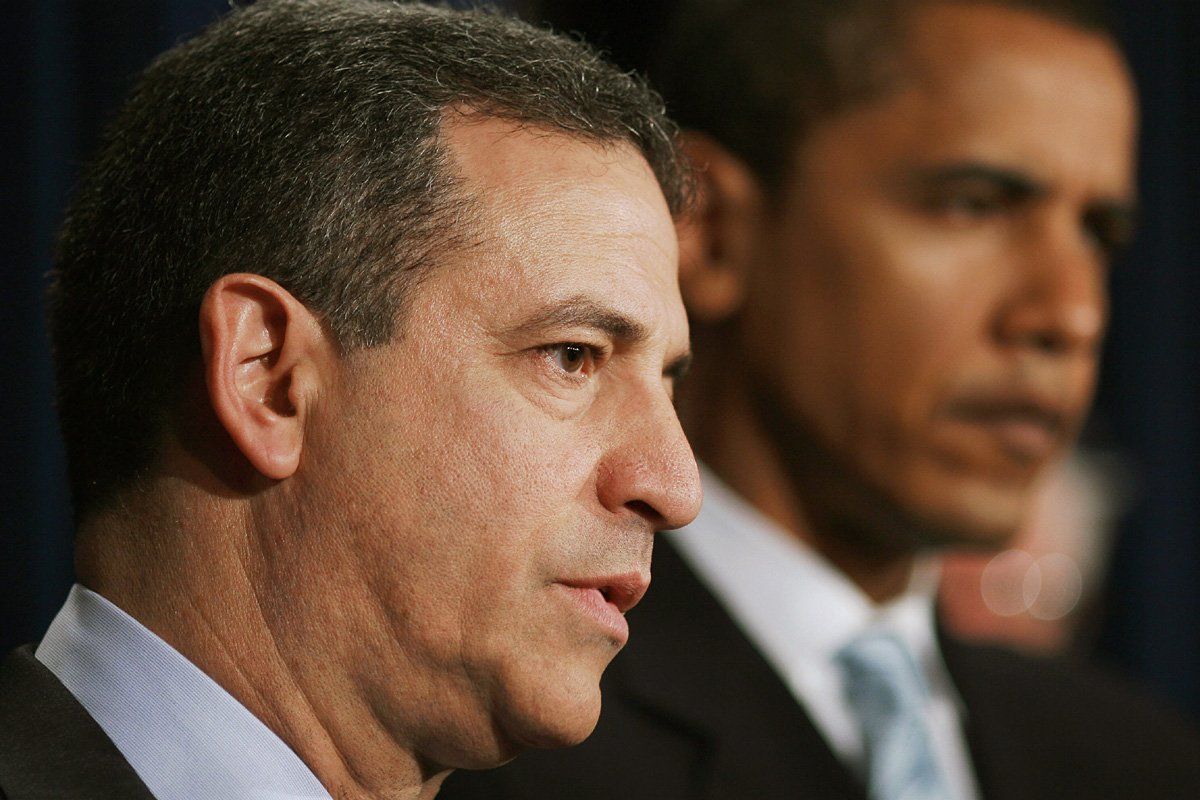
The looming defeat of Wisconsin Sen. Russ Feingold, an antiwar Democrat and a staunch liberal, after three terms in Washington has sparked talk, particularly among conservatives, of an unlikely scenario: that Feingold could challenge President Obama for the Democratic nomination. National Review editor Rich Lowry said on last weekend's McLaughlin Group—a show on which (full disclosure) your author is a regular guest—that if Feingold loses, as polls suggest he will, Obama had better offer him a cabinet post quickly to take him out of the presidential competition.
That speculation seems questionable. Feingold has always been an unlikely senator, much less presidential aspirant. He made his name forging ahead with Republican John McCain on campaign-finance reform, for which both men were rightly lionized, but today McCain-Feingold has been so shredded by the Supreme Court, it's little more than a footnote in the futile attempt to limit money in politics. Feingold is a serious and courageous protector of civil liberties and was the only senator to vote against the Patriot Act after the 9/11 attacks. He's been more outspoken than most in his opposition to Obama retaining Bush-era policies on government secrecy and the war, but would he really take on the president?
Unlikely, but the key would be Afghanistan. Feingold opposed the war in Iraq and spoke out against Obama's escalation in Afghanistan. Right now, things in Afghanistan and Iraq aren't going particularly well, but the nations aren't constantly leading the news and commanding complete voter attention. Should that change, and should Obama cave to the generals and renege on his promised drawdown in Afghanistan, the door could open to a challenge from the left, for which Feingold would be suited. He has a record of principled opposition from the left to Obama's domestic program as well, voting against financial reform, arguing it was too weak and would make matters worse.
Not that Feingold could wrest the nomination from Obama, but he could make it not worth having. Even liberal lion Sen. Ted Kennedy, beloved by his party, couldn't defeat a weakened Jimmy Carter in the 1980 Democratic primaries, but the bitter contest between the two men helped ensure Carter's loss to Ronald Reagan.
Conservatives are also obsessed with the idea that Hillary Clinton is off to the side plotting and planning and will eventually show her true colors and challenge Obama for the nomination she and her husband supposedly believe rightly belongs to them. This scenario probably stems from the lingering belief on the right that the Clintons are so power-hungry that they'll do anything to get back into the White House. It's fantasy: Hillary is a loyal Democrat and knows that a challenge from her would tear her party apart. Even if she were so inclined, she couldn't win. If Obama is vulnerable to a challenge in 2012, it's from the left: He has continued too many of Bush's war policies and is too timid on domestic issues. Hillary is a hawk on foreign policy and a centrist otherwise, so she would come at him from the right, but that wouldn't help her to win over Democratic primary voters. Not to mention that the African-American voters she couldn't win in '08 would see her candidacy as a betrayal.
The White House has knocked down the rumor that Hillary might replace Joe Biden on the ticket in 2012, but there's another trial balloon making the rounds, which is that Hillary could replace Bob Gates as Secretary of Defense when he steps down sometime next year. That would be another first for a woman and would burnish her resume, establish her as a credible commander in chief, and set her up for a strong presidential run in 2016.
Yet conservatives are persistent. Shoot down the idea of Russ Feingold and Hillary Clinton, and they say, "What about Howard Dean?" More than Clinton and Feingold, Dean has reason to feel slighted by the Obama administration. He's never been forgiven for clashing with Rahm Emanuel over the allocation of money for congressional races in '06, even though his insistence on a 50-state strategy paid dividends for Obama in '08. A medical doctor, he made no secret of his wish to head Health and Human Services, but he was frozen out of any job in the administration. At one point during the health-care fight, when he disagreed with the White House, Obama supporters suspected he might be laying the groundwork for a primary challenge in 2012. But as a former party chairman, Dean knows how disastrous it would be for the party to have a sitting president challenged, so the odds of his taking on the kamikaze mission are zero.
That leaves us with a fallback theory that conservatives like (and some Democrats buy into as well), which is that Obama doesn't seem to enjoy being president, that he's an intellectual with no patience for politics and no appetite for schmoozing, and that he'll stand down in 2012. The problem with that is you don't get to be president without a healthy ego, and getting reelected is the definition of a successful presidency. For all the theorizing about what 2012 might bring, one of the only predictions likely to prove true is that Obama will run for a second term, and any Democrat thinking about challenging him must know how much doing so would delight the opposition.
Uncommon Knowledge
Newsweek is committed to challenging conventional wisdom and finding connections in the search for common ground.
Newsweek is committed to challenging conventional wisdom and finding connections in the search for common ground.





